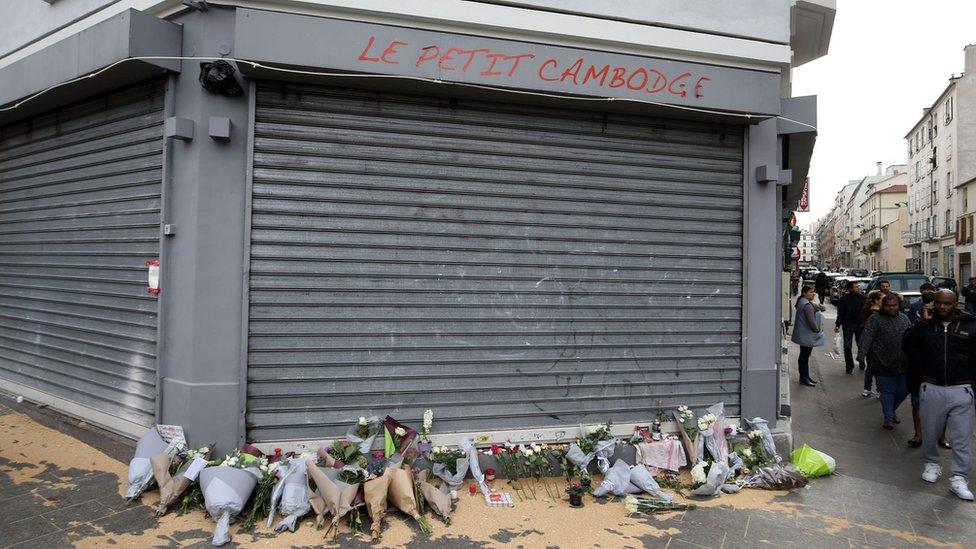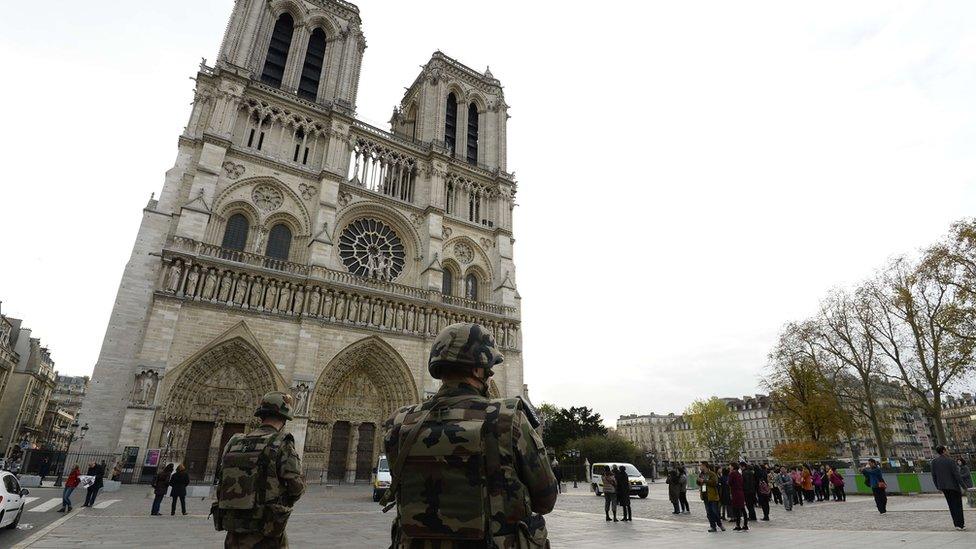Paris attacks: A new terrorism and fear stalks a city
- Published

After the Charlie Hebdo attacks in January, people asked: Is Paris safe? But deep-down most did not feel seriously under threat.
They may have taken refuge in the notion that the targets then were rabble-rousing cartoonists and Jewish people.
The majority in January marched in solidarity, but they did not share the fear.
Today it is different.
Friday night's attacks, external were the Middle East come to Europe.
They were of a ferocity, scope and randomness which we associate with Beirut or Baghdad - but not with Paris or London.
No easy answer
In Western cities - though we may not like to admit it - terrorism has been largely contained in its application.
We think of terrorists as having political demands and a conscience set to some form of recognisable moral compass.
So those who died in the past tended to be of specific groups plus a few random bystanders.

But seen from Paris this new terrorism seems massive, nihilistic and death-loving.
Now, the killing of others is not an unfortunate by-product of a political mission. According to the perpetrators, it is part of a divinely-ordained master-plan which they believe will bring them eternal glory.
There is no answering that logic. There is no easy response to this thinking. And there is precious little our societies can do to stop it either, because all it requires is some young men with faith and a gun.
That is why now - for the first time - fear does stalk the city.
Solidarity?
The mother wonders about her teenage son. Perhaps he should stop going to bars. The husband worries about his wife when she is late from work.
In a million petty ways, behaviour is being altered. There are calls for off-duty police officers to carry guns.
Is this the next stage: a society fearful, and under arms?
It is all exactly as the perpetrators of these attacks want.
They would like nothing more than a ratcheting up of the state's powers. After that they will try to stage another attack - proving again the government's limited effectiveness - and the far right will continue its surge.
Which is the other terrorist aim. No-one would be happier than them if the National Front's Marine Le Pen were to sweep to power, and French society to collapse (as it might) into warring factions.
After the Charlie attacks there was a huge wave of emotion, which produced the million-person rally at the Place de la Republique.
The purpose of the rally was to express that very French notion of "solidarity" - standing together as citizens beside those who have suffered.
There may well be a similar outpouring of public emotion in the days ahead. But some will say the word "solidarity" is meaningless.
Now everyone stands to suffer, and how do you express "solidarity" with yourself?